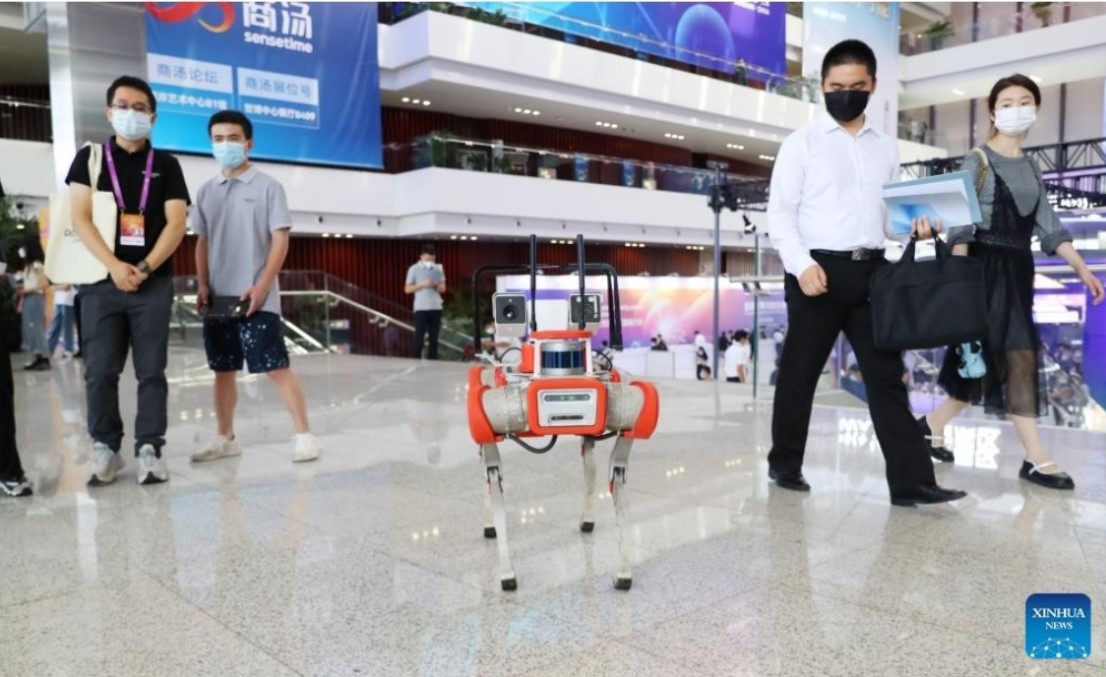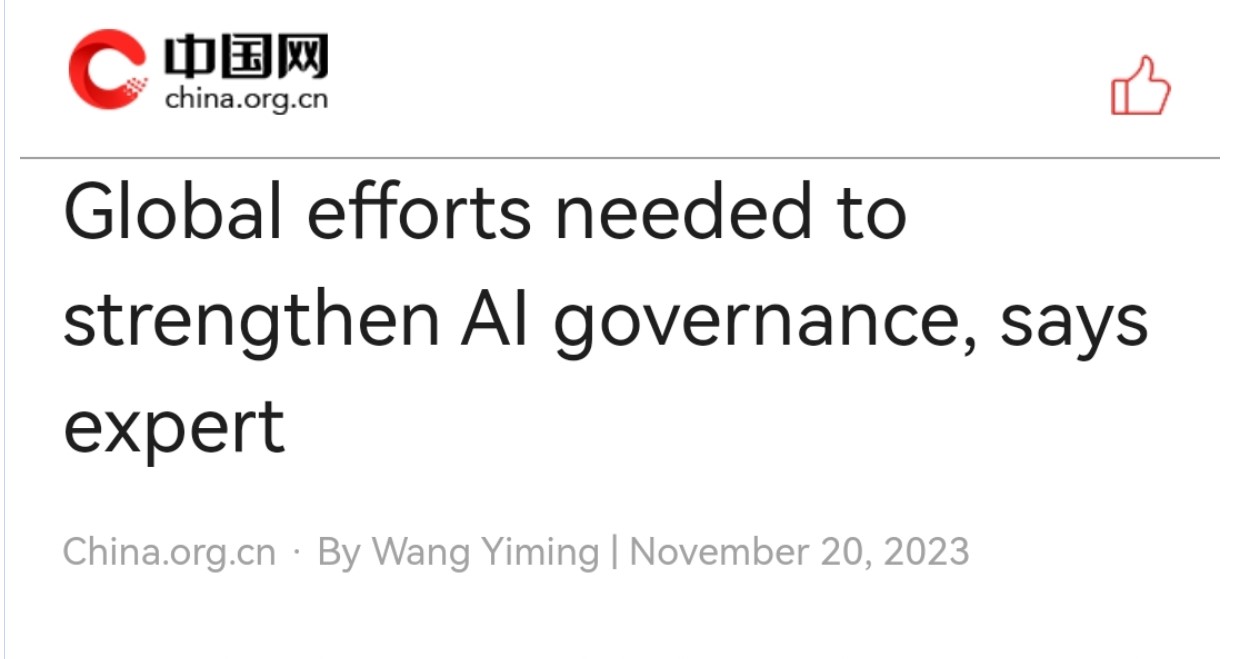博文
Global efforts needed to strengthen AI governance, says expe
||
Global efforts needed to strengthen AI governance, says expert
By Wang Yiming lChina.org.cn, November 20, 2023

An inspection robot for fire reconnaissance is seen at the 2022 World Artificial Intelligence Conference (WAIC) in east China's Shanghai, Sept. 1, 2022. [Photo/Xinhua]
Artificial intelligence (AI) is leading a new wave of industrial transformation, bringing significant development opportunities worldwide. However, it has also triggered a series of risks and challenges.
"Urgent global efforts are needed to strengthen AI governance and steer its development towards a more ethical and beneficial direction," said Liu Wei, a researcher at the Beijing University of Posts and Telecommunications' School of Artificial Intelligence.
Analyzing the challenges of global AI governance, Liu pointed out various risks, including concerns about privacy and data security, ethical and moral issues, impacts on the job market, and threats posed by military applications such as automated weapon systems.
Liu emphasized the necessity of international cooperation in AI governance. He suggested establishing collaborative mechanisms to address challenges and formulating common standards and regulations to prevent technological barriers and unfair competition.
At the Third Belt and Road Forum for International Cooperation held in October, China introduced the Global AI Governance Initiative, signaling its commitment to promoting positive developments in global AI governance.
The initiative outlines a comprehensive plan focusing on AI development, safety, and governance. It advocates a people-centered approach, prioritizing humanity's well-being while ensuring social security and respecting human rights.
Liu Wei, recognizing this initiative, underscored that AI development is not just a technical issue but profoundly affects various aspects of life, production processes, and the future societal and economic landscape. He noted its impact on technological foundations, economic development models, and international relations.
In the field of AI, the technological capabilities of the United States and China are ahead of those of other countries globally, noted Liu, who also serves as the director of the Human-Computer Interaction and Cognitive Engineering Laboratory at the Beijing University of Posts and Telecommunications.
"While the U.S. excels in AI software, hardware, and innovative research, China has access to vast and diverse data, extensive research outcomes, and widely applicable scenarios," Liu said.
He advocated for collaboration between the two countries to maximize their respective advantages, fostering technological progress that benefits both bilateral relations and global governance.
As humanity delves deeper into the AI era, Liu stressed the importance of a cautious and responsible approach. He called for proactive regulation and standardization of AI through laws, ethical guidelines, and moral standards to ensure its safety, fairness, and trustworthiness.
"The future development of AI requires effective regulation and control at both the technical and societal levels. A worldwide, inclusive discussion involving public participation is also vital to ensure AI technology evolves in harmony with humanity's shared values and interests," he added.
Follow China.org.cn on Twitter and Facebook to join the conversation.
ChinaNews App Download

https://blog.sciencenet.cn/blog-40841-1410425.html
上一篇:人类智能中存在不同于时空坐标系的坐标系
下一篇:态势的感知在态势之外